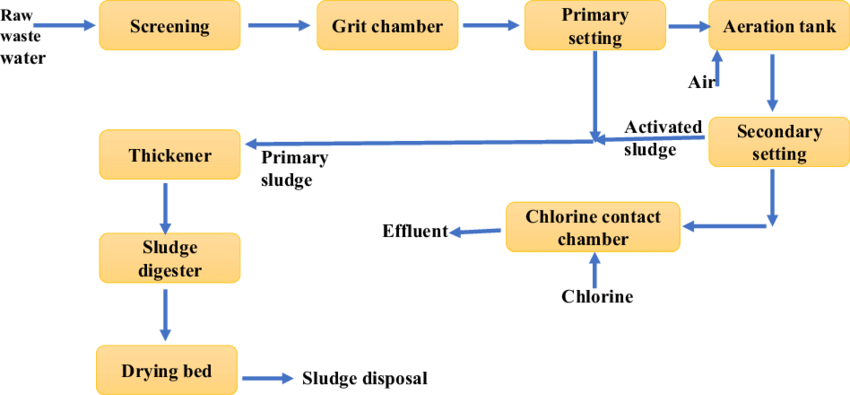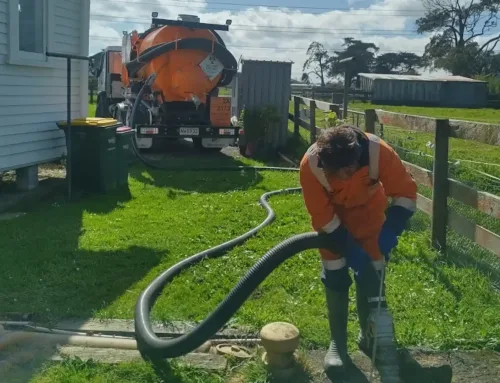Not known Facts About Reclaim Waste
Not known Facts About Reclaim Waste
Blog Article
Reclaim Waste - Questions
Table of ContentsFascination About Reclaim WasteReclaim Waste - An OverviewFascination About Reclaim WasteSome Known Details About Reclaim Waste Some Known Factual Statements About Reclaim Waste
Domestic sewage waste refers to the waste and products from a residential septic storage tank. The appropriate management and disposal of residential sewage waste need liquid waste to be moved to a sewage therapy plant where the appropriate techniques and devices are applied to cleanse and dispose of waste.
Commercial waste usually consists of possible risks, such as flammable products or a mixture of fluid and strong waste products, and requires a much more innovative and thorough disposal process. The disposal of business waste typically includes the filtration of waste prior to transportation to ensure secure and proper disposal. Hazardous waste is created from by-products and runoff of industrial procedures and production.
This kind of waste can not make use of the exact same sewage monitoring transportation or processes as septic or commercial liquids. The hazardous waste monitoring process needs the examination and testing of liquid waste before it goes through the disposal procedure (liquid waste removal). Overflow waste is the fluid waste that originates from runoff and excess stormwater in highly inhabited locations or cities
Drainage waste can cause contamination and flooding if not taken care of effectively. Making certain correct waste administration can stop disasters and minimize ecological harm.
Reclaim Waste Can Be Fun For Anyone
Get in touch with PROS Providers today to learn more about our waste monitoring and disposal services and the proper ways to look after the fluid waste you produce.
(https://reclaimwaste.godaddysites.com/f/efficient-liquid-waste-disposal-removal-melbourne)Do you know what takes place to your water when you draw the plug, purge the commode or drain the cleaning device? No? Well, it deserves recognizing. This so-called 'wastewater' is not only a crucial resource yet, after therapy, will be released to our land, waterways or the ocean. Made use of water from commodes, showers, bathrooms, kitchen area sinks, washings and commercial processes is recognized as wastewater.

water made use of to cool down machinery or clean plant and devices). Stormwater, a kind of wastewater, is drainage that moves from farming and metropolitan areas such as roof coverings, parks, gardens, roads, courses and rain gutters into stormwater drains, after rain. Stormwater flows neglected straight to local creeks or rivers, eventually reaching the sea.
Some Known Details About Reclaim Waste
In Queensland, the majority of wastewater is treated at sewage therapy plants. Wastewater is moved from residential or industrial sites via a system of sewers and pump stations, referred to as sewerage reticulation, to a sewage treatment plant. City governments develop, maintain and operate most sewer treatment plants. Operators are accredited under the Environmental Protection Act 1994 to release treated wastewater at an acceptable environmental requirement into rivers.
The Division of Natural Resources advises city governments regarding handling, operating and maintaining sewage systems and therapy plants. In unsewered locations, city governments may need householders to mount specific or family sewer treatment systems to deal with domestic wastewater from toilets, kitchens, restrooms and washings. The Department of Natural Resources authorizes the usage of house systems when they are proven to be efficient.
In some brand-new class, treatment of some stormwater to get rid of clutter, sand and gravel has actually started making use of gross contaminant catches. Wastewater treatment takes place in four phases: Gets rid of solid issue.
Wastewater then moves right into large containers where solids settle and are gotten rid of as sludge. Grease and residue are skimmed from the surface area. Uses little living organisms referred to as micro-organisms to damage down and eliminate continuing to be dissolved wastes and fine particles. Micro-organisms and wastes are included in the sludge. Removes nitrogen and phosphorus nutrients that could create algal blooms in our rivers and threaten water life.
The Definitive Guide to Reclaim Waste
Nutrient removal is not offered in any way sewer therapy plants since it requires costly specialised devices. It is ending up being extra common in Queensland. Clear fluid effluent generated after therapy may still contain disease-causing micro-organisms. If this effluent is launched right into waterways such as rivers or the sea, the micro-organisms will at some point pass away out.

This typically implies wastewater has to be treated or impurities gotten rid of before it can be released to waterways. Many wastewater flows into the sewerage system. Under the Act, neighborhood federal governments provide approvals and licences for eco appropriate activities (ERAs) entailing wastewater launches that might have a local influence. The department carries out authorizations and licences to ERAs entailing wastewater launches that may have a local or statewide influence.
The Ultimate Guide To Reclaim Waste
Surveillance gives valid information about water quality and can confirm that licence problems are being satisfied. The info acquired via surveillance gives the basis for making water top quality choices.
Report this page